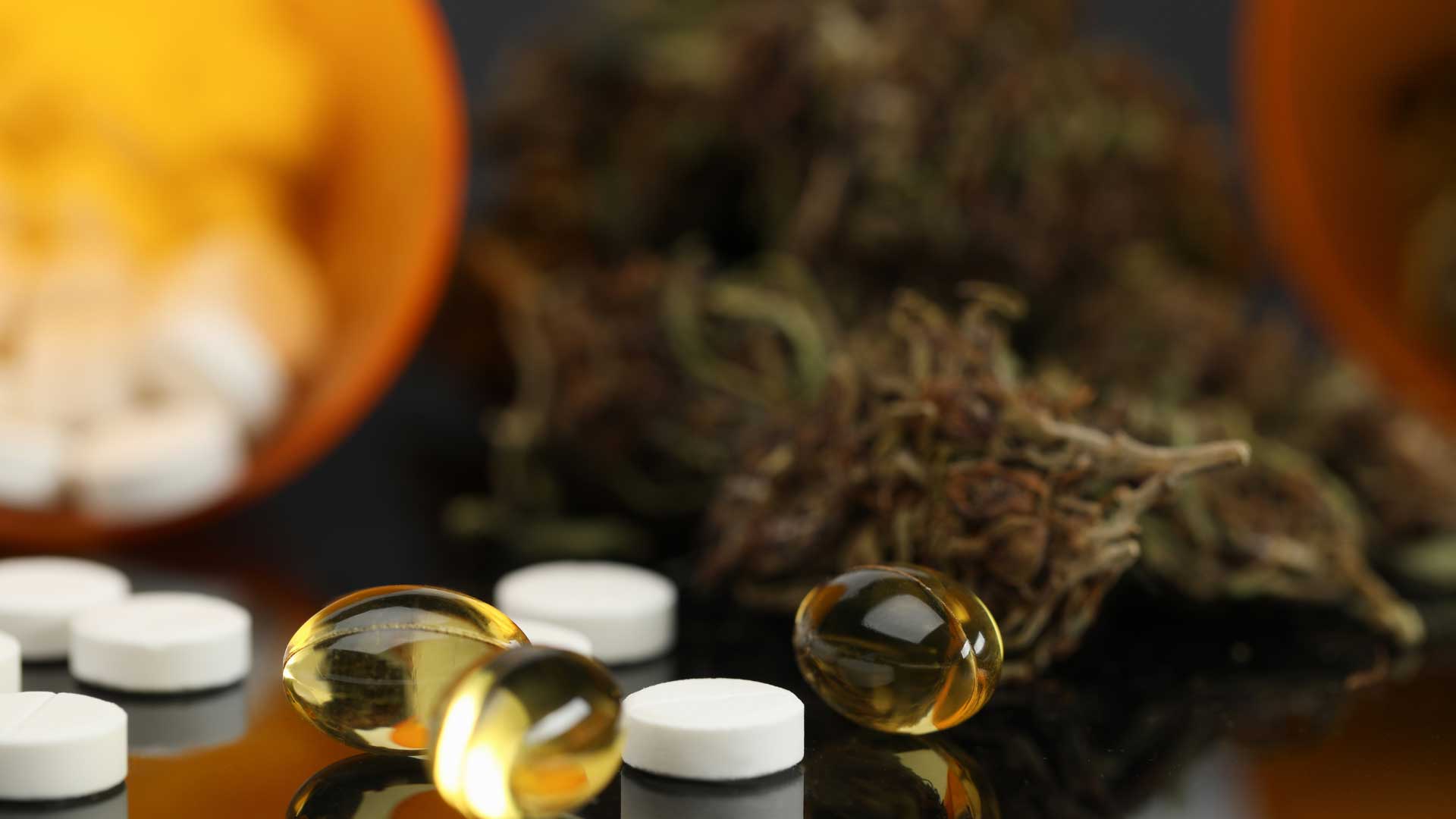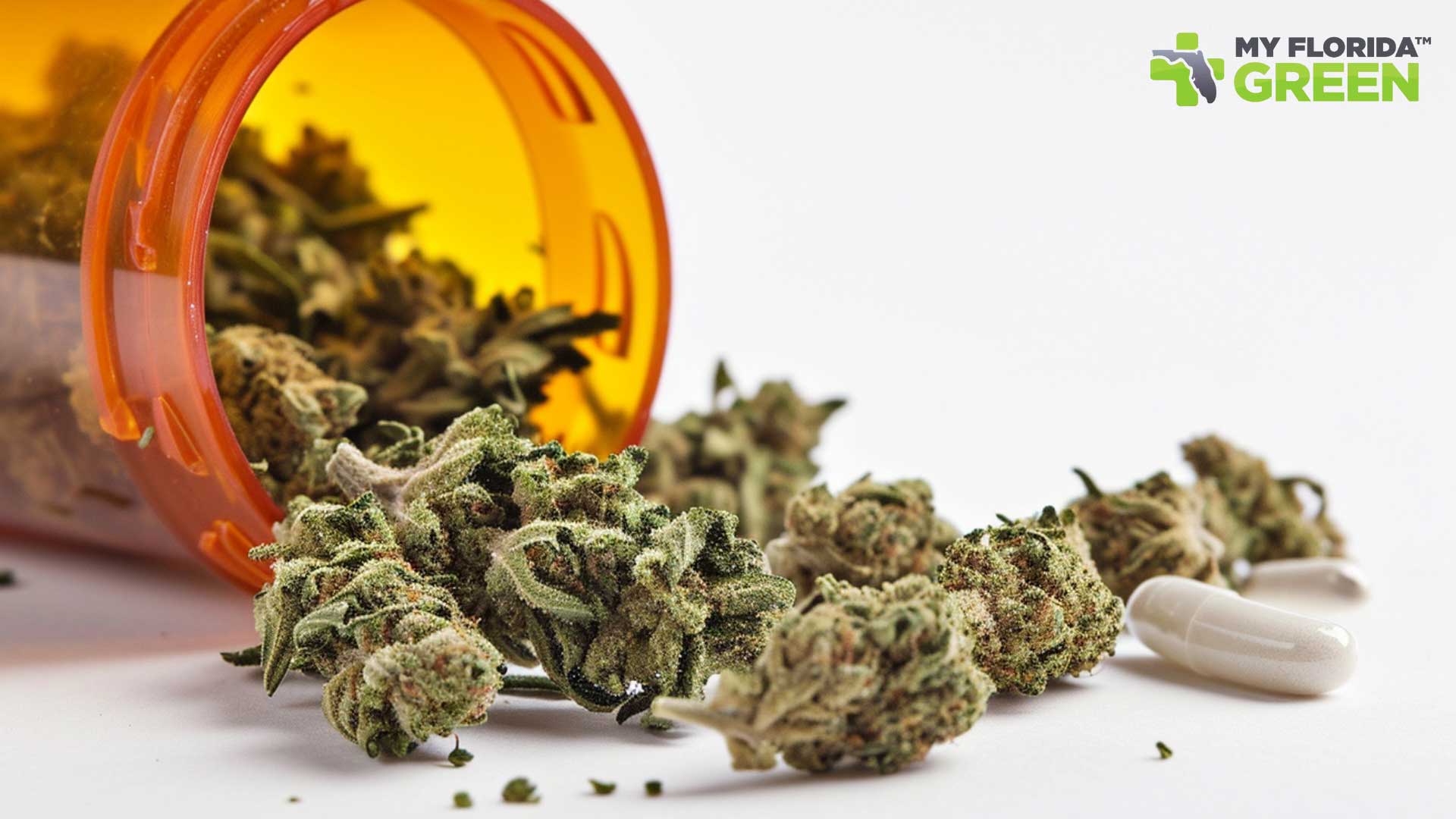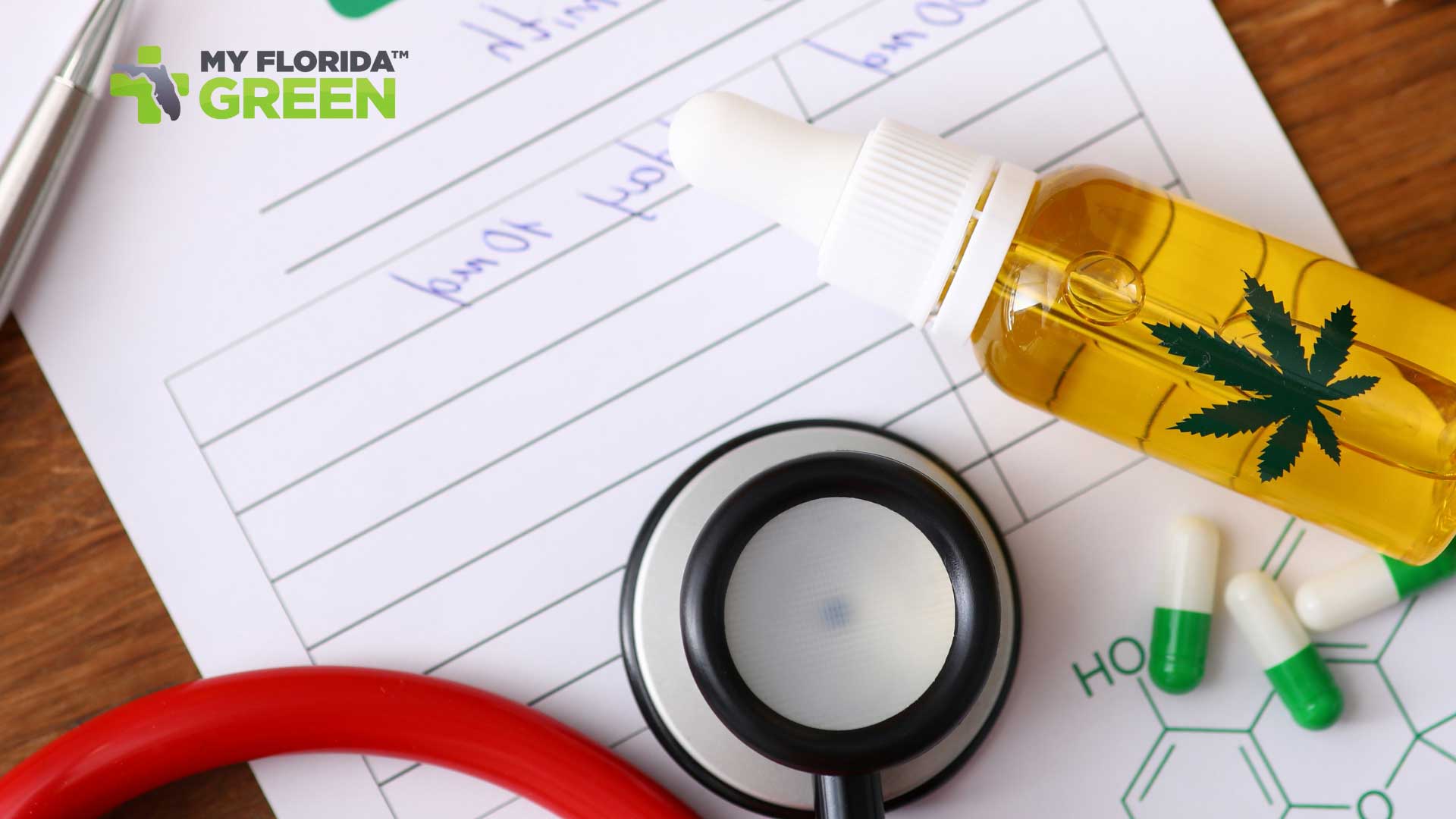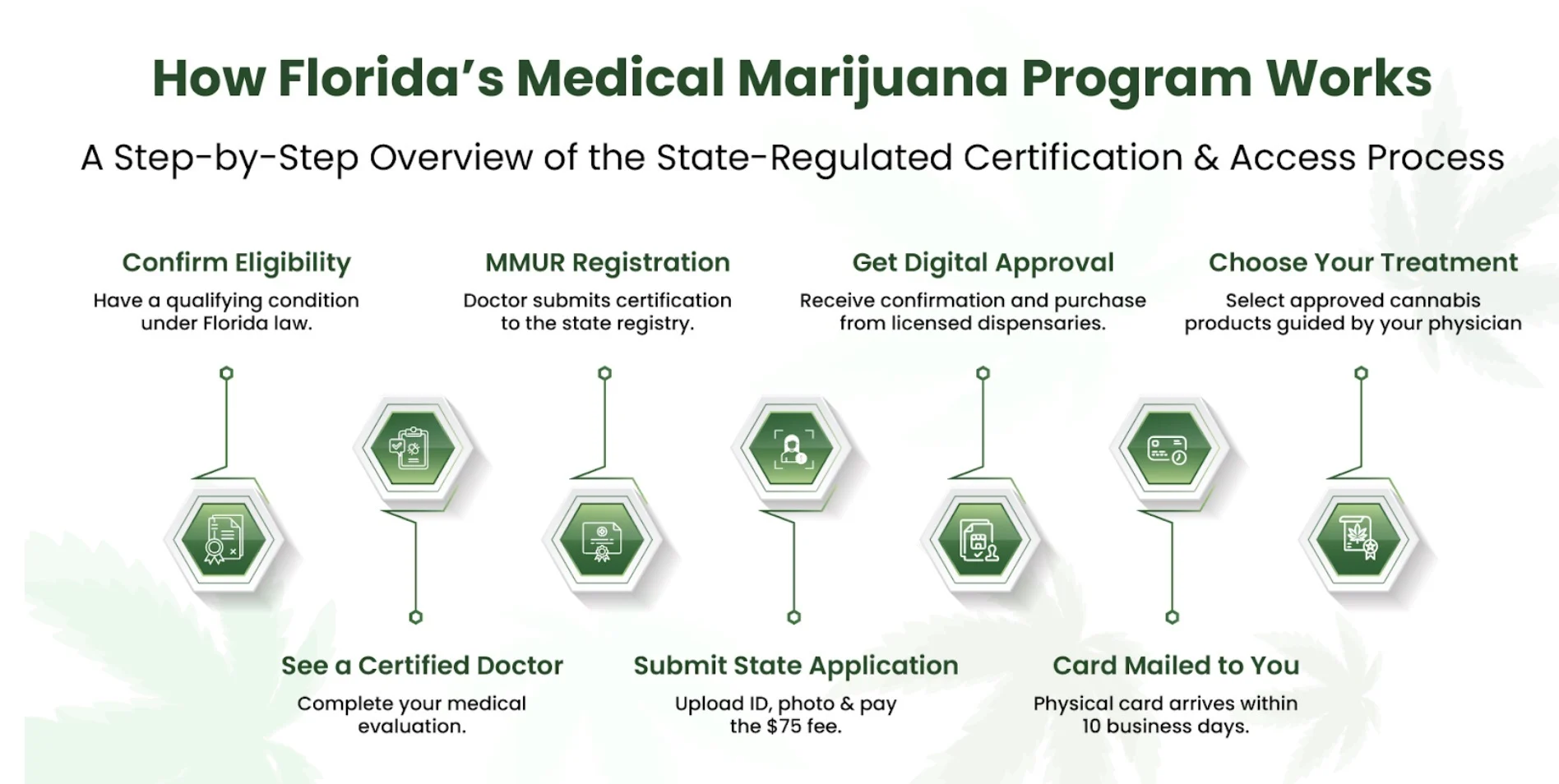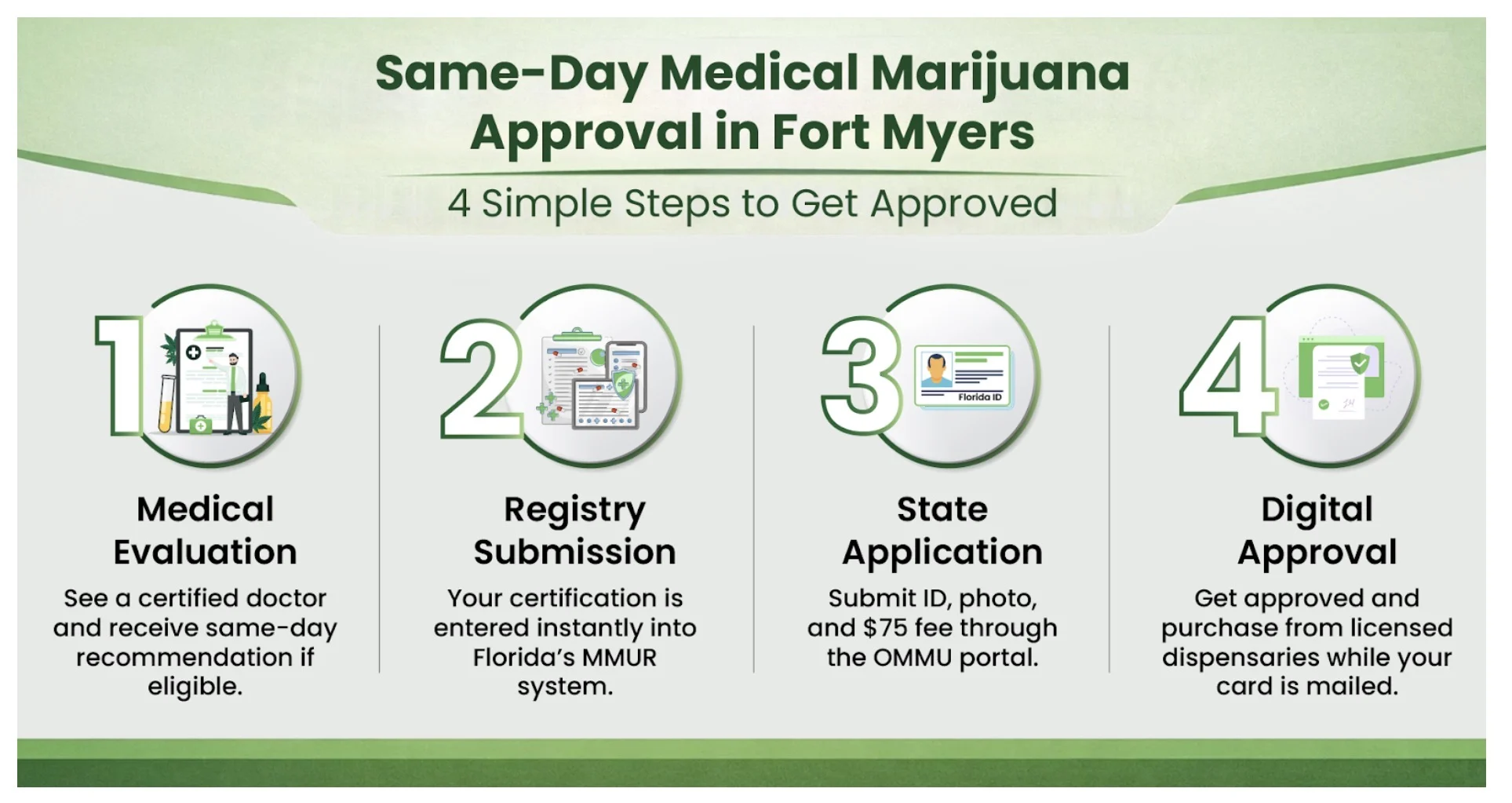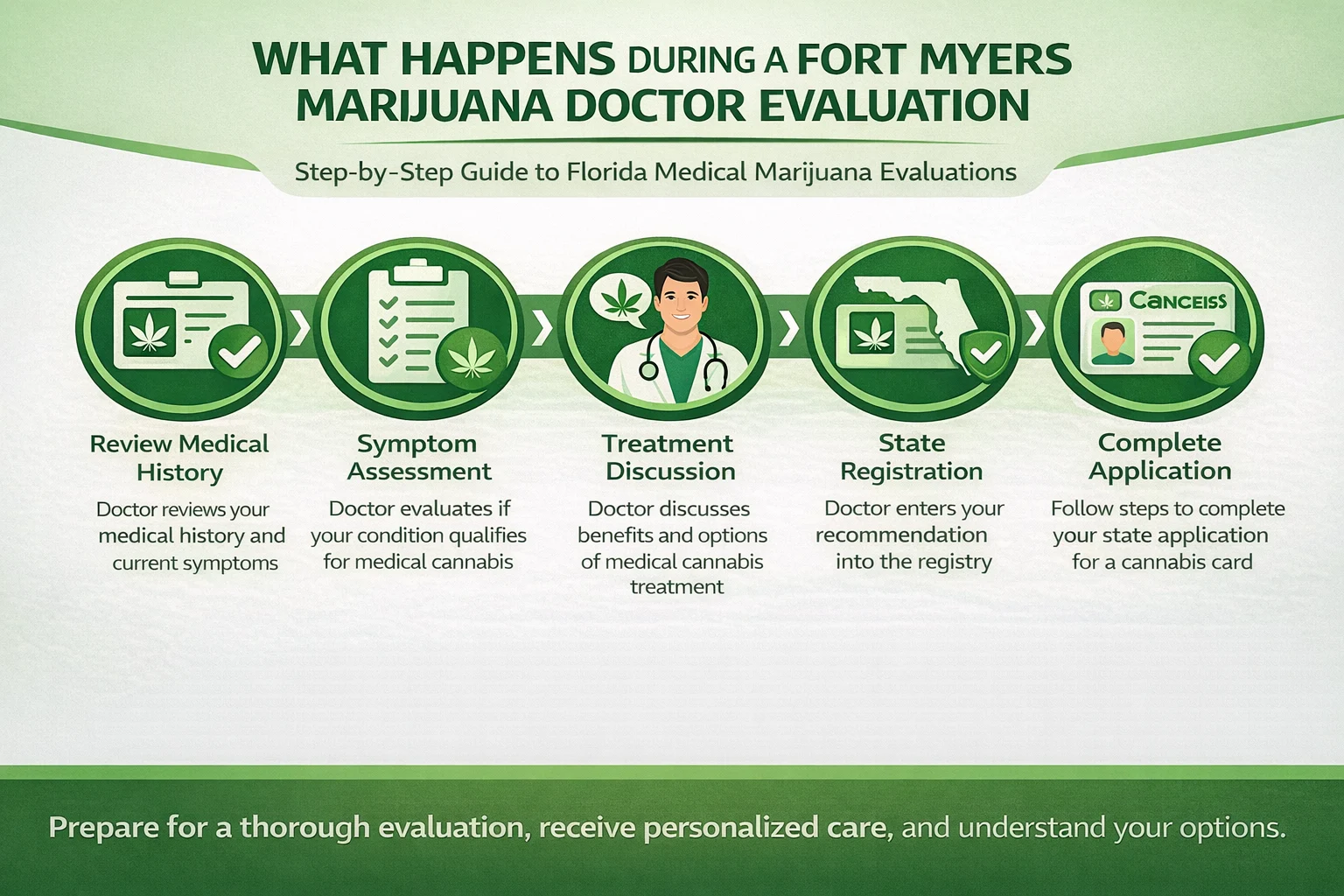With the latest breakthroughs in medical marijuana research, there is a growing interest in natural alternatives to traditional medicines. This trend comes as the U.S. grapples with the opioid crisis, a public health emergency claiming tens of thousands of lives annually. Medical marijuana is now being considered a potential treatment option for managing the symptoms of different illnesses and providing relief from pain. However, having complete knowledge about MMJ and consulting a medical marijuana doctor are necessary factors for safe cannabis use.
In this article, we dig deep to explain whether medical marijuana can work alongside opioids as a therapy option. Moreover, we will focus on how you can lawfully Get Medical Marijuana in Florida.
What are opioids?
Opioids aid in treating severe or persistent pain. They help individuals with chronic headaches and backaches, as well as patients recovering from surgery or experiencing intense pain from cancer. Moreover, opioids also help in managing pain for adults and children who have been injured in sports, falls, accidents, or other incidents.
However, there are side effects attached to the use of opioids, such as sleepiness, constipation, and nausea. In some cases, more severe health side effects such as shallow breathing, a slowed heart rate, or loss of consciousness can manifest.
Marijuana, on the other hand, has recently demonstrated some extraordinary medical properties as a result of clinical investigations. Read further to learn more about this wonder drug.
How Does Marijuana Help in Reducing Opioid Use?
Numerous studies indicate the effectiveness of cannabinoids present in marijuana in the treatment of chronic pain. These cannabinoids work with the body’s pain mechanism to reduce pain impulses and ease pain sensations.
As a result, many chronic pain patients, especially those with fatal conditions, are turning to marijuana for pain management.
Role of Medical Marijuana Cannabinoids
The endocannabinoid system in the human body consists of cannabinoid receptors (CB1 and CB2). These receptors are essential for regulating functions such as pain, mood, and appetite. They are also present in the neurological and immune systems. Cannabinoids derived from medical marijuana can bind to these receptors when administered into the body. Moreover, their interaction can alter pain perception by binding to these receptors.
1. Anti-inflammatory Effects
Inflammation is a common cause of discomfort in illnesses such as arthritis. Based on research, CBD has anti-inflammatory effects. Medical marijuana can reduce pain linked to inflammatory diseases by lowering inflammation.
2. Muscular Relaxation
Medical marijuana can also relax muscles, which can be very helpful for individuals suffering from muscular spasms or tension-related pain.
3. Nerve Pain Relief
Some types of pain, such as neuropathic pain, are caused by nerve injury or dysfunction. Medical marijuana has been found to ease neuropathic pain by lowering nerve inflammation and hypersensitivity.
Medical marijuana can also have a psychological influence, assisting patients in coping with chronic pain by reducing anxiety and enhancing mood. As a result, it indirectly helps ease the pain.
Using an MMJ Card for Medical Marijuana Use
In Florida, medical marijuana, like opioids, is a controlled drug. Thus, expert consultation is necessary before initiating marijuana-based treatment. Every patient must have a medical marijuana card to prove their eligibility to consume medical marijuana legally.
Thus, contacting a licensed doctor about using medical marijuana for pain relief is crucial. Skilled doctors can not only guide you on the potential benefits of medical marijuana but also expedite the process of obtaining your marijuana card. This can significantly reduce unnecessary delays, allowing you to receive your card within a few weeks of completing the registration process.
Qualifying Conditions for Obtaining an MMJ Card
Florida residents having symptoms of one of the following conditions can apply for a medical marijuana card. The Florida Department of Health maintains a list of these conditions, which currently includes but is not limited to:
- Anorexia
- Anemia
- Depression
- Anxiety
- Cancer
- PTSD
- Multiple Sclerosis
- Nausea and vomiting
- Migraines
- Chronic pain
- Mood disorders
- Muscular spasticity
- Parkinson’s
- Alzheimer’s
- Hepatitis C
- Amyotrophic Lateral Sclerosis
- Cachexia
- Rheumatoid arthritis
- Glaucoma
- Irritable Bowel Syndrome
- Muscular Dystrophy
- Diabetes
- Lyme disease
- HIV/AIDS
- Crohn’s disease
- Insomnia and Sleep disorders
Are you experiencing symptoms of a qualifying medical condition for MMJ? Talking to a medical marijuana doctor can be a helpful step. They can assess your symptoms, rule out other causes, and develop a treatment plan that includes medical marijuana if appropriate. This can help prevent your condition from worsening.
Exploring Medical Marijuana Products for Pain Relief
Several marijuana products can relieve pain, with every strain having its own benefits and administration method. Following are a few examples:
Flower (Buds): It is the most well-known type of marijuana product. It can be smoked or evaporated in joints or pipes. Moreover, the effects are often immediate, making it an excellent choice for acute pain relief.
Edibles include brownies, candies, or chocolates. They provide long-lasting pain relief, but the effects are not instant and often take 30 minutes to 2 hours to set in.
Tinctures: They are liquid extracts of marijuana that are commonly put under the tongue with a dropper. They allow for more controlled and discrete marijuana consumption.
Topicals are lotions, balms, or ointments with cannabinoids like CBD or THC. You can apply them directly to the skin for localized pain relief.
You can buy the required products by visiting a medical marijuana dispensary, such as Liberty Health Sciences or Green Dragon dispensary.
Bottom Line
Medical marijuana is a considerable pain-management option, but it is not a one-size-fits-all replacement for opioids. Consulting a healthcare professional is crucial to determining if medical marijuana is right for you and how to use it safely. The MMJ doctors at My Florida Green can ease your path to cannabis by offering support and insights regarding the legality of MMJ products. Conclusively, medical marijuana can prove to be a safe option for pain management if taken with expert discretion.

